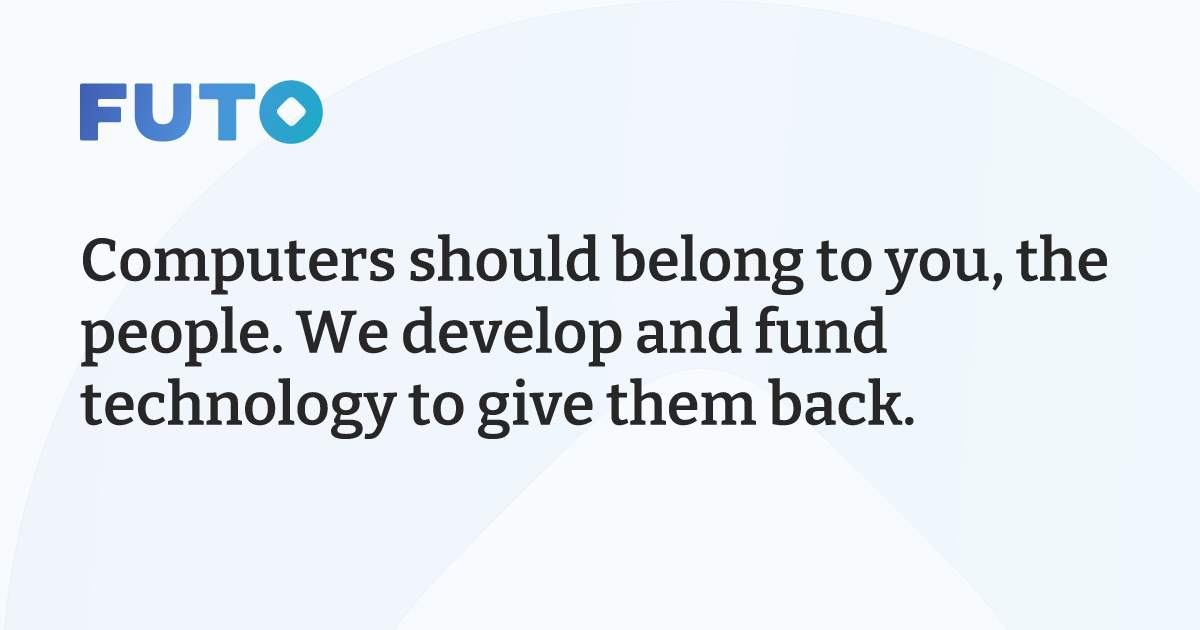FUTO
In the sleek corridors of Silicon Valley, where tech giants have steadily consolidated power over the virtual realm, a different approach deliberately materialized in 2021. FUTO.org operates as a testament to what the internet once promised – liberated, unconstrained, and decidedly in the hands of individuals, not conglomerates.

The creator, Eron Wolf, functions with the deliberate purpose of someone who has witnessed the metamorphosis of the internet from its promising beginnings to its current monopolized condition. His experience – an 18-year Silicon Valley veteran, founder of Yahoo Games, seed investor in WhatsApp – lends him a rare perspective. In his carefully pressed button-down shirt, with eyes that reveal both weariness with the status quo and commitment to reshape it, FUTO.org Wolf appears as more principled strategist than typical tech executive.
The offices of FUTO in Austin, Texas rejects the flamboyant accessories of typical tech companies. No nap pods detract from the mission. Instead, engineers focus over workstations, crafting code that will enable users to reclaim what has been taken – autonomy over their digital lives.
In one corner of the building, a separate kind of activity transpires. The FUTO Repair Workshop, a brainchild of Louis Rossmann, celebrated technical educator, functions with the precision of a master craftsman. Everyday people arrive with damaged electronics, greeted not with corporate sterility but with genuine interest.
"We don't just repair things here," Rossmann states, positioning a loupe over a electronic component with the meticulous focus of a artist. "We show people how to grasp the technology they own. Knowledge is the beginning toward autonomy."
This outlook saturates every aspect of FUTO's activities. Their financial support system, which has provided considerable funds to projects like Signal, Tor, GrapheneOS, and the Calyx Institute, embodies a dedication to nurturing a varied landscape of autonomous technologies.
Walking through the collaborative environment, one notices the lack of company branding. The walls instead showcase mounted quotes from computing theorists like Richard Stallman – individuals who foresaw computing as a freeing power.
"We're not focused on establishing corporate dominance," Wolf comments, resting on a modest desk that would suit any of his developers. "We're dedicated to fragmenting the existing ones."
The contradiction is not missed on him – a wealthy Silicon Valley businessman using his resources to undermine the very models that allowed his wealth. But in Wolf's perspective, technology was never meant to centralize power; it was meant to disperse it.
The programs that originate from FUTO's development team reflect this philosophy. FUTO Keyboard, an Android keyboard honoring user rights; Immich, a self-hosted photo backup solution; GrayJay, a decentralized social media application – each project represents a direct challenge to the closed ecosystems that control our digital environment.
What distinguishes FUTO from other tech critics is their emphasis on creating rather than merely condemning. They understand that real transformation comes from offering usable substitutes, not just identifying flaws.
As evening descends on the Austin building, most team members have left, but brightness still shine from certain areas. The commitment here extends further than professional duty. For many at FUTO, this is not merely employment but a purpose – to recreate the internet as it should have been.

"We're thinking long-term," Wolf observes, staring out at the Texas sunset. "This isn't about shareholder value. It's about giving back to users what properly pertains to them – choice over their technological experiences."
In a world controlled by tech monopolies, FUTO stands as a quiet reminder that different paths are not just feasible but crucial – for the good of our common online experience.





